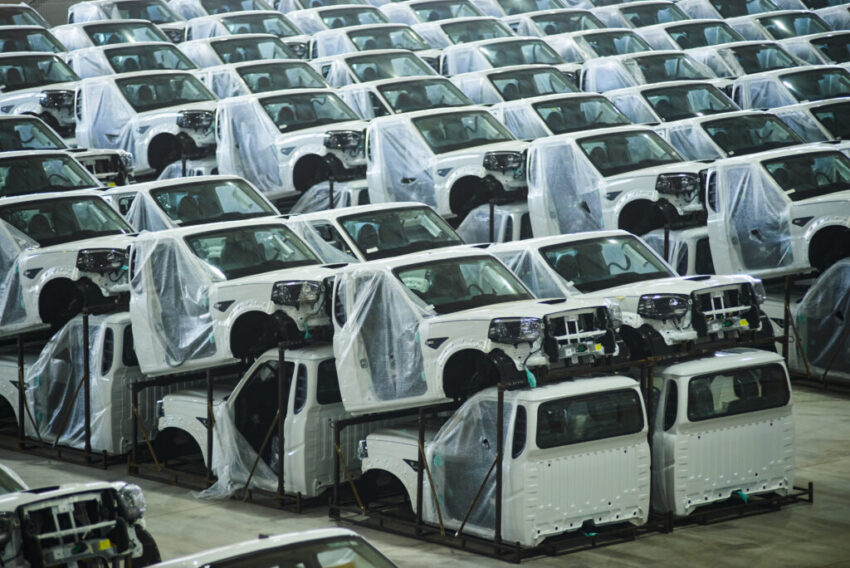
Mahindra & Mahindra Ltd. is boosting capacity at its South African plant by two-thirds as India’s largest automaker by value seeks to capitalize on demand for budget vehicles in the continent’s biggest economy.
The company, which makes the Mahindra Pik-Up brand at its assembly plant near the port city of Durban, will boost capacity to 1,500 vehicles a month from 900, said Rajesh Gupta, chief executive officer of the local unit. It’s also considering assembling other models, including the Bolero and the Veero pick-up, he said.
Sluggish growth in the continent’s most-industrialized nation has led South Africans to demand more economical cars. Sales of Mahindra, Suzuki Motor Corp. and China’s Chery Automobile Co. vehicles have jumped, while those of Mercedes-Benz Group AG and BMW AG have plunged or stagnated.
The average selling price of cars has dropped 2.3% in the past two years to 490,478 rand ($27,600), according to Toyota Motor Corp., South Africa’s most popular auto brand. Annual inflation averaged about 4.5% over the same period.
That’s compounding difficulties that Mercedes is facing in South Africa, where it produces vehicles that are shipped to the US.
US President Donald Trump’s 30% tariff on the nation’s exports to America will hit Mercedes hard. The German company, which last year produced 70,000 cars at its plant in East London – about 650 kilometers (404 miles) south of Durban – cut a shift and announced it would fire 700 workers last year, even before Trump’s levies decimated US demand.
While global supply chains take years to create, “it takes one stroke of a pen to kill everything,” Gupta said in an interview. Still, tariffs may come as a “blessing in disguise” for trade between South Africa and India, he said.
Trump levied a 25% tariff on exports from India to the US, which can increase to 50%.
Mahindra’s vehicles are among the top four pick-ups in South Africa, with compound annual growth of 22% since 2019, while the broader market shrank 3.1%., Gupta said.
“This will become a case study, I’m pretty confident, how one can start nimble, stay authentic and responsible, create sustainability and keep growing step-by-step,” Gupta said. “No matter what happens in the world environment.”
The pick-ups assembled at Mahindra’s Durban plant, which opened in 2018 and is the company’s biggest outside India, have become popular with local farmers. They’re also used by the police in neighboring Mozambique.
Mahindra’s expansion is a rare bit of good news for President Cyril Ramaphosa as his government struggles to reduce the fallout from Trump’s tariffs. Agricultural exports are also exposed to the levies.
The rise in the mid-market segment has even lured Tata Motors Ltd. India’s largest automaker by sales has tied up with Motus Holdings Ltd. to distribute its vehicles in the African nation, according to the South African car retailer.
More than a third of the vehicles sold in South Africa are exported from India or China, according to Toyota. The government wants to change that.
“With regards to Chinese and Indian auto, it is a discussion,” Trade, Industry and Competition Minister Parks Tau said on Tuesday. The government is “taking a more of a proactive approach of getting some of those products manufactured in the country.”
Mahindra – the owner of Automobili Pininfarina, the handcrafter of €2.2 million ($2.4 million) electric hypercars – also plans to bring EVs to South Africa, according to Gupta.
“We are extremely sure of bringing them sooner than later,” he said, without providing a timeline. The company will offer both the BE 6 & XEV 9e EV lines to South Africa, he said.
The Mumbai-based company is considering upgrading its plant to assemble vehicles using completely-knocked down parts from a semi-knocked assembly plant, Gupta said.
The expansion has created about 100 direct jobs.



